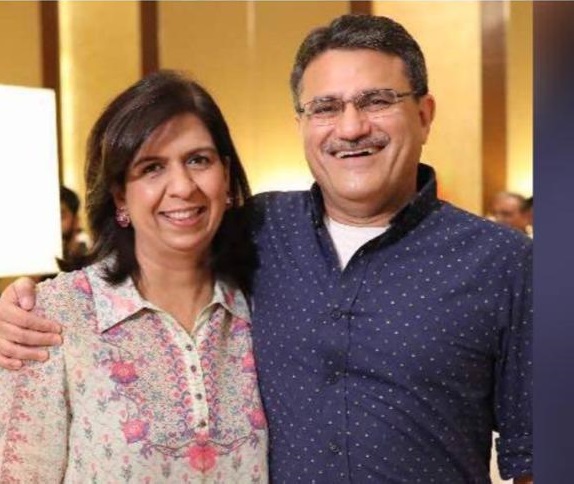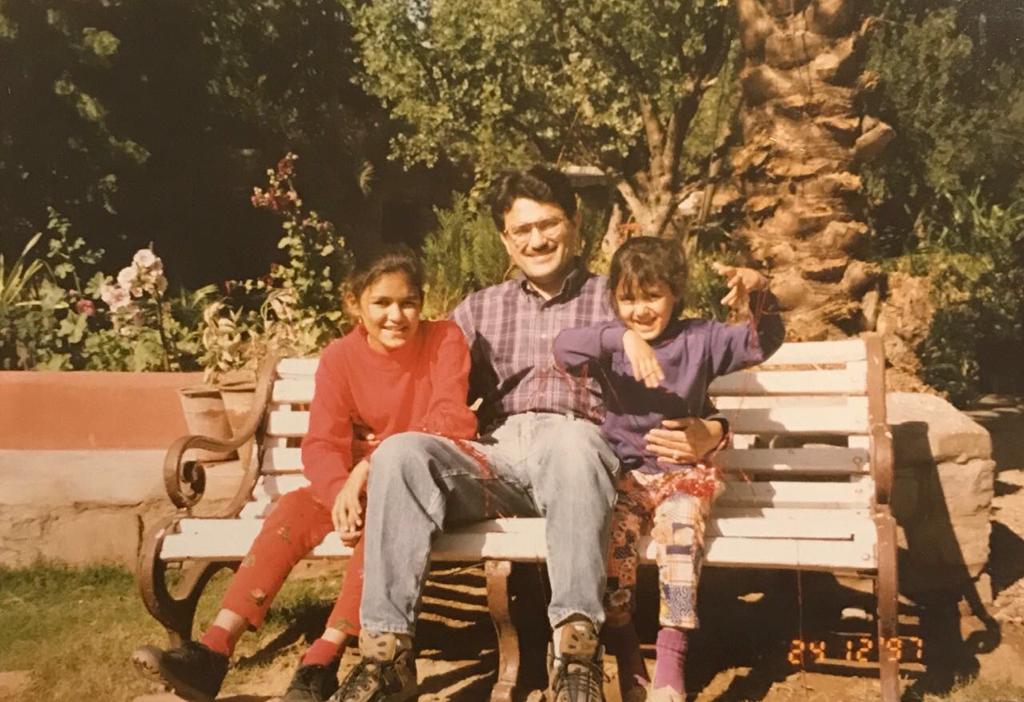“Focus on your karma—your work, what you have to deliver and contribute,” says SoftBank Energy’s executive chairman Manoj Kohli. This is not a corporate message he is delivering. It is a cold winter morning in an upscale Gurugram apartment in northern Indian state Haryana. Kohli is narrating his learnings from Indian scriptures.
Relentless focus on the goal
It is a turning point from the Bhagavad Gita, an episode from the Hindu epic Mahabharata that he is drawing from. “Insulate yourself from the noise, what people say or do, just keep acute focus on the contribution you are about to make.”
“For business, it is a good lesson to follow. Focus on the contribution to society, your company, your business, do not get digressed, it enhances productivity and increases output. Arjun got that in Gita, and I got that in my personal and professional life,” he smiles.
Kohli is very down to earth. An alma mater of premier Indian institutes (prominent among them are Sri Ram College of Commerce and the Faculty of Management Studies), he has headed top positions in renowned Indian companies such as DCM Shriram Group and Bharti Airtel before taking charge as the executive chairman of SB Energy, a joint venture by Japan’s SoftBank, Taiwan’s Foxconn and Bharti Airtel.
Assess the past but look ahead
“Leaders are not only about business success. The bigger role of a leader is to transform the business for tomorrow. Masa (Masayoshi Son, director and chairman of SoftBank) learns every day and he runs multiple industries. It is all about positive energy and teamwork.”
So Kohli believes in living life every day, improving over days gone by, prays every morning as he mulls on the good things he did the day before and also those which were not so good. “You are not complete today, you have to keep on improving.”
Pay heed to life lessons
This grounded value system is the result of Kohli’s close bond with his grandparents in his formative years. “My grandmother, Maya Kaur, made me read out from scriptures to her, it was her way of teaching me. She was from a Sikh family and used to visit the gurudwara (Sikh place of worship) every morning for sewa (service). She used to take me along, I would help her clean the gurudwara, collect and deliver slippers and all the while she would be narrating stories of Guru Nanak (the founder of Sikhism).”
One story has stayed with him. It seems on a trip to Mecca Medina with his disciples Bala and Mardana, Guru Nanak felt very thirsty while walking through the desert. On searching nearby they came upon an oasis with clear water and as Guru Nanak bent down with his hand in the water to drink, he saw a scorpion drowning in the water.
He immediately scooped it out to save it, but the scorpion stung him as soon as it was out of the water. Guru Nanak’s hands quivered and the scorpion fell back in water and so it continued three times. Puzzled, Bala queried why the guru kept saving it despite being bitten repeatedly.
At this, Guru Nanak said: “The scorpion’s nature is to bite, my character is to save, to help and support. My character is of a higher order and I should stay with my character, I should not change because of the scorpion. I will keep doing this, maybe it will learn from me.”
“My grandmother told stories to root these values in me. It is said that values ingrained before the age of 15 years are lifelong.”
“Indian culture has centuries of learning rooted in good values. Indian wisdom is about balance, respect, humility, honesty, which is deep yet simple,” says this fan of tennis champion Roger Federer (“he is my biggest idol, leads a balanced life, has a good family life, excels in his job, and has relentless focus”).
Maintain a regime
He credits his parents for a lot of his “good habits”. He still starts his days early, at around 5.30 am and does not need an alarm clock to be jolted out of sleep. “The alarm is like a shock, I get up by myself naturally.”
He then proceeds with three “rituals”—prayer and meditation (“It gives me a lot of power and confidence in myself), meets his mother to take her blessings (“She is over 80, she likes it and I like it, we draw power from each other”), and then spends 45 minutes to an hour exercising—walking, doing yoga.
“By 7 am, when I have tea with my wife, I even finish some office mailing work and am physically, mentally and spiritually ready.” His wife, Disha Kohli, says she is amazed by his sense of discipline and commitment that makes him unfailingly stay on path.
Balance is vital
Ever the family man, Kohli has ensured that the focus stays on the right things. “My wife and I are the best friends of each other, we criticise each other, learn together, built our destiny together, building together is very gratifying,” adds Kohli who says he learned the value of simplicity, staying grounded and importance of focus and thoroughness from his wife.

He grew up in a small family. “We were not very well off, had a small house, but we always had good food though my mother put her foot down on wasting food. She said, Take only that much that you can eat, take more helpings if you need. I used this lesson of zero wastage through my professional career.”
“For example, in Airtel, we had two to three billion of annual capex (capital expenditure), I stressed on using it in a productive way through a zero wastage plan. It was a small but effective learning.”
Women have indeed played a significant role in Kohli’s life. “I am very blessed to have so many strong women in my life, my grandmothers, my mother, wife, two sisters, and now two daughters—Misha and Tanya, are a strong influence on me.”
“I fundamentally believe that women have a stronger character, mental ability and personality. Not only are they more resilient in managing ups and downs of life than men, but also are more sensitive.” At this point, his wife of 33 years adds, “People can learn from the way he treats women. He has never put me down, always gives me a lot of respect.”

Kohli, a follower of Mahatma Gandhi and Nelson Mandela’s ideals, believes in balance. Striking the simile of a circus juggler, he speaks of the five balls that are thrown up in air and never allowed to fall. “Of the five, one is a rubber ball—your profession, if you are good, even if it falls, it will bounce back. The rest are all glass balls—first is your family, then it is friends, especially your old friends, they know you as you. Don’t be too busy to lose touch with them.”
“The third ball is your health and fitness. The last glass ball is your spirit. Your attitude is also your altitude.”
Many among the younger generation ignore the last two, rues Kohli. “An hour of fitness routine is most important. It leads to success and joy. The second thing is sleep, both the quality and importance of sleep have come down because the young generation is so immersed in social media that they don’t realise that productivity and focus go down if you sleep less. Good sleep provides answers to many questions. It makes you more agile and attentive.”
Why being humble is key to achieving success
Talking of attitude, he narrates another episode, this time from the other eternal Indian epic Ramayana. When Lord Ram was battling with Ravan who was about to die, Ram called his brother Lakshman to pay heed to what Ravan was about say. He addresses Ram and says, “You didn’t kill me, I’m killed by my arrogance.”
Thus, humility, Kohli underlines, is very important to lead a business, a team and also to build a team. “If you are arrogant then the team will have divisions, won’t bond together, if you meld into the team, it will teach the members to work together.”
A voracious reader known to read even two books in a day, Kohli likes meeting new people, learning from new cultures, activities he calls “nourishment of the mind”. “Hunger to learn makes you excel in life,” he says, adding, “also unlearn a bit, some things may not be as relevant today. Age has nothing to do with learning. At 60, I am as inquisitive as I was when I started my career at 20.”
Want to share your story of how you thrive? Write to us at [email protected]


